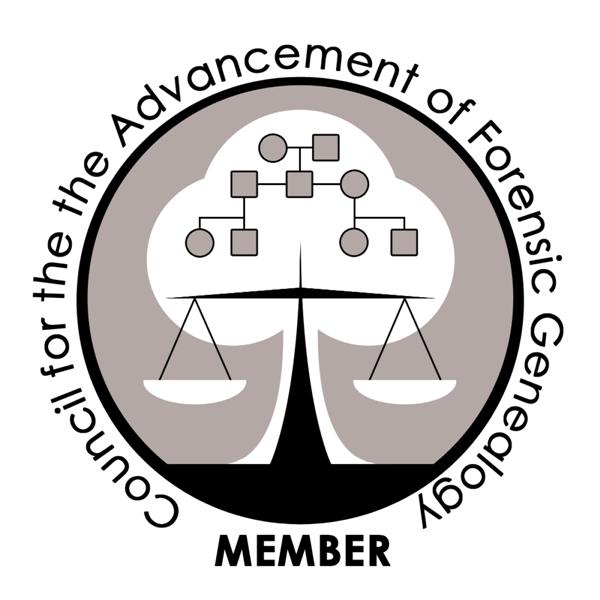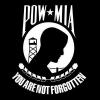Forensic Genealogy Services, LLC
Dee Dee King, FGC (sm), FCAFG (sm)*
832-336-2156
PO Box 1085
Manvel Texas 77578
Forensic Genealogy
by Dee Dee King, Certified Genealogist, Copyright Dee Dee King
Published 2011. Part 1 based on an article previously published in OnBoard, September 2009
Forensic genealogy is an emerging specialty of importance to both the genealogical and legal fields. However, our profession has yet to reach consensus in defining it or the standards that should guide its practitioners. At present, there is only a general recognition that forensic genealogy offers unique work opportunities with additional responsibilities and liabilities distinguishing it from research without legal implications. At a minimum, as with any specialty, the practitioner should possess advanced education, experience, and skills. The complexity of this specialty is not suited to those just entering the profession
of genealogy.
Define forensic genealogy
If forensic genealogy is to earn appropriate respect within our profession and among the non-genealogical professions we serve, we must define this specialty. That definition should use terminology familiar and applicable to target consumers, as it sets standards of experience, education, and performance.
The American Academy of Forensic Sciences (AAFS) offers this definition of forensic sciences:
- The word forensic comes from the Latin word forensis: public; to the forum or public discussion; argumentative, rhetorical, belonging to debate or discussion. From there it is a small step to the modern definition of forensic as belonging to, used in or suitable to courts of judicature, or to public discussion or debate. Forensic science is science used in public, in a court or in the justice system. Any science, used for the purposes of the law, is a forensic science."1
AAFS further states, "The forensic scientist's goal is the evenhanded use of all available information to determine the facts and, subsequently, the truth."2
How does this apply to forensic genealogists? "Evenhanded" suggests unbiased. As in science, the law also relies upon research, documentation, and reporting by unbiased third-party witnesses and experts. Professional genealogists accept that their role is to research, document, and report their findings from an unbiased position. Forensic genealogists should rely upon methods and ethics consistent with the Genealogical Proof Standard: reasonably exhaustive research; complete and accurate source citations; analysis and correlation of the collected information; resolution of any conflicting evidence; and a soundly reasoned, coherently written conclusion.3
Considering all these points, I propose that a forensic genealogist is one who
- is qualified through a combination of education, training, and work experience;
- is employed or retained by attorneys, law firms, estates, courts, corporations, governmental agencies, or other entities;
- performs kinship determination in legal issues as an independent third-party researcher, analyst, reporter, and witness; and
- uses methods and ethics consistent with the highest professional standards.4
How can one qualify as an expert?
Some states use Daubert or Frye standards to test for reliability of "expert witnesses."5 Some jurisdictions use other standards. The judge serves as the gatekeeper in assessing whether an expert witness is qualified, and whether the expert's testimony is relevant and based upon a reliable foundation. The following are some general indicia of reliability, drawn from Daubert and Frye:
The witness possesses
- specialized education and training beyond that of the normal lay person,
- relevant experience with both research and court appearances; and
- appropriate credentials.
The work product
- uses methodology standard for the field, outside as well as inside of litigation;
- and has been peer reviewed.
The opinion is:
- reasonably based on the proper types of evidence,
- a sound deductive process; and
- is presented in a rational form.
The results can be
- tested by reproducing the research path.
1  "Resources> Choosing a Career," Amencan Academy of Forensic Science (http://www.aafs.orgldefault.a sp?section_id=resources&page_id=choosing_a_ career#Bookrnarkl : accessed 28 July 2009).
"Resources> Choosing a Career," Amencan Academy of Forensic Science (http://www.aafs.orgldefault.a sp?section_id=resources&page_id=choosing_a_ career#Bookrnarkl : accessed 28 July 2009).
2  Ibid.
Ibid.
3  "Genealogical Proof Standard," Board for Certification of Genealogists (http://www.bcgcertification.org/ resources/standard.html : accessed 6 July 2009).
"Genealogical Proof Standard," Board for Certification of Genealogists (http://www.bcgcertification.org/ resources/standard.html : accessed 6 July 2009).
4 Dee Dee King, Forensic Genealogy Services, LLC (www.forensicgenealogyservices.com) and other copyrighted marketing material.
Dee Dee King, Forensic Genealogy Services, LLC (www.forensicgenealogyservices.com) and other copyrighted marketing material.
5 Frye v. Uniled States (D.C. Cir. 1923) and Daubert v. Merrell Dow Pharmaceuticals. Inc.. 43 F.3d 1311 (9th Cir. 1995) set standards for admissibility of expert witness testimony in Federal legal proceedings. Overviews of each are available as "Scientific Evidence: Frye v. United States," and "Daubert Test: Further Reading," Law Library: American Law and Legal lnformation (http://law.jrank.orgi : last accessed 27 August 2009).
Frye v. Uniled States (D.C. Cir. 1923) and Daubert v. Merrell Dow Pharmaceuticals. Inc.. 43 F.3d 1311 (9th Cir. 1995) set standards for admissibility of expert witness testimony in Federal legal proceedings. Overviews of each are available as "Scientific Evidence: Frye v. United States," and "Daubert Test: Further Reading," Law Library: American Law and Legal lnformation (http://law.jrank.orgi : last accessed 27 August 2009).
*Council for the Advancement of Forensic Genealogy (CAFG) is the credentialing body governing the ForensicGenealogistCredentialed(SM) credential (which is abbreviated as FGC). FCAFG indicates that the recipient has been designated as a Fellow of Council for the Advancement of Forensic Genealogy.
Copyright © 2007-2022, Forensic Genealogy Services, LLC All rights reserved. May not be reproduced in whole or in part in any manner without advance written permission. Copyright extends to all text, photographs, images and html. You may freely link to this site, but may not structure our linked web pages to appear to belong to any other site.
Copyright © 2007-2022

